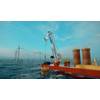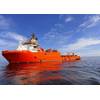Rotterdam Port Promotes VLSFO
Europe’s largest bunker port Rotterdam said that the new low-sulfur bunker oil VLSFO (Very Low Sulfur Fuel Oil with a maximum 0.5% sulfur) has become extremely popular in the port.
Half of all November bunker sales were for VLSFO. This became apparent from the bunkering notifications via the Port of Rotterdam Authority’s TimeToBunker App.
As of 1 January 2020, sea-going vessels on the world’s oceans may only use fuel with a sulfur content of no more than 0.5%. The current maximum is 3.5%. High-sulphur fuel will only be permitted on vessels that have scrubbers - an installed filtration system - on board.
The TimeToBunker App shows that VLSFO sales have increased dramatically over the past two months: September 1,700 tonnes, October 32,000 tonnes and November 95,000 tonnes. This means that the VLSFO percentage within total fuel oil sales grew from 1.8% in September to 51.6% in November. This separation based on fuel oil sulfur levels can only be made in TimeToBunker.
The sulfur level of fuel oil is not stated in standard bunkering notifications. However, Ronald Backers, the Port Authority’s bunkering expert, suspects that this trend is representative for all bunker sales in Rotterdam: "The TimeToBunker App has been used since February and is a huge success. Over a third of all bunkering notifications run via the app. I see no reason to assume that companies that still make standard bunkering notifications have completely different clients with completely different fuel oil purchasing behavior."
Although even stricter sulfur regulations apply to shipping on the North Sea and bunker oil may only contain 0.1% sulfur, many shipping companies in Rotterdam are ordering VLSFO, because they also sail intercontinentally and not just across the North Sea.
Related News





